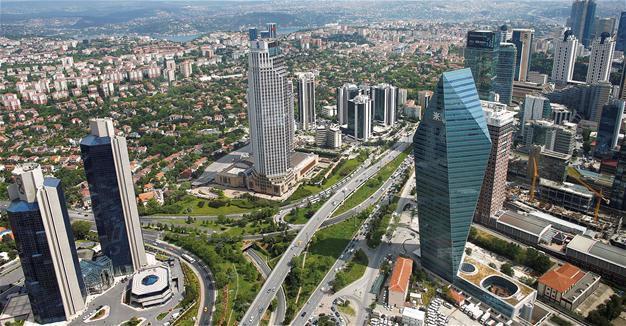Development bank EBRD cuts growth forecast for Turkey
ISTANBUL

The European Bank for Reconstruction and Development (EBRD) has cut its growth projections for Turkey from 4 to 3 percent, due to several concerns, while growth across the EBRD region is expected to pick up in 2016 and 2017, according to a written statement released on Nov. 3.
“Turkey will grow at a slower pace in 2016 than in 2015. After a turbulent summer, which saw ratings downgrades and a drop in equity markets after the failed coup, a pick-up in consumption and tourism [provided that security concerns subside] is expected to prop up growth, but rising oil prices and regional tensions remain a risk,” said the statement.
Growth in Turkey, which is now the EBRD’s biggest market but has seen a strong government clamp down following a coup attempt earlier in the year, is projected to moderate to around 3 percent between 2016 and 2017, from around 4 percent in the first half of 2016, as a result of weaker outlook for investment, it noted.
Growth across the EBRD region is expected to pick up in 2016 and 2017 despite continued major risks, according to the bank’s latest economic forecasts.
“Depressed commodity prices and security concerns are putting a brake on growth in some countries while geopolitical tensions and weakness of global trade continue to weigh on others. Meanwhile, the British vote to exit the European Union, while raising questions about the impact on growth in the Eurozone, has had a positive short-term effect on capital flows to emerging markets,” said the bank.
The EBRD region, which stretches from southern and eastern Mediterranean countries to Eastern Europe and Central Asia, is forecast to grow at an average of 1.6 percent this year (an upward revision of 0.2 percentage points since the previous EBRD forecast in May) and 2.5 percent next year, compared with 0.5 percent growth in 2015, it noted.
The bank, however, warned of a potentially “scary” economic hit to its bloc of countries if Britain’s exit from the EU goes adversely and fuels a backlash against market economy reform.
Russia and Greece are emerging from recession, according to the bank.
“Both economies shrank in the first half of the year, so there is still no growth in average numbers for 2016, but estimates indicate that Greece has just passed the turning point and Russia is close to it. Russia’s economy will still narrow on average this year, but gradual recovery is expected to take hold in the second half of 2016 and continue in 2017. Greece will move from last year’s recession to zero growth for 2016, and then to positive growth in 2017,” the bank said, adding that south-eastern Europe as a whole is on the rise.
Ukraine and Moldova are, however, back in the black.
Ukraine returned to growth in the first half of 2016, after the economy shrank by a total of 16 percent in the previous two years. Non-performing loans (NPLs) remain an acute problem in Ukraine, and Moldova’s modest growth is backed by household consumption, the bank said.
Recessions in Azerbaijan, hit by oil prices, and Belarus, which is suffering from the recession in Russia for the second year, will mean an average contraction in Eastern Europe and the Caucasus region in 2016, it added.
 The European Bank for Reconstruction and Development (EBRD) has cut its growth projections for Turkey from 4 to 3 percent, due to several concerns, while growth across the EBRD region is expected to pick up in 2016 and 2017, according to a written statement released on Nov. 3.
The European Bank for Reconstruction and Development (EBRD) has cut its growth projections for Turkey from 4 to 3 percent, due to several concerns, while growth across the EBRD region is expected to pick up in 2016 and 2017, according to a written statement released on Nov. 3.